Description
Writing a Will-Things to Know
Assets include everything you own and or control including bank accounts, shares, land, houses which you intend to leave in a Will. Estate includes everything that a deceased owns or controls including debts and liabilities. An estate is the simply the assets less the liabilities.
Will-Maker (formerly known as the “testator”) is the person who has made the Will. Executor is the person or authorised statutory company appointed in a Will to administer and distribute the Will-Maker’s estate according to the instructions in the Will. Ideally, a Will-Maker should appoint someone with common sense and the ability to act in accordance with the Will at all times. An executor can also be a Beneficiary with the Will.
Beneficiary is a person or legal entity who receives money or other benefits in your Will, i.e. the recipient of a particular amount of money or item of property. Probate is a High Court order that establishes that a Will is valid and gives the executor authority to deal with the estate. Probate is only required when a single asset in the estate is valued at more than $15,000.
In summary, your Will specifies your Beneficiary(s) and your Executor of your estate. Also, should one of your assets in your estate exceed $15,000, probate from the Court is required. The probate procedure covers all assets. It is not necessary to apply for probate on a per-asset basis.
Reasons to get a Will:
Everyone’s situation is different, but if at least one of the following applies to you, you might want to consider writing a will sooner rather than later:
1. Children: If you have kids under 18, having a Will can appoint a guardian
2. Unmarried couples living together: If you have been living in a de-facto relationship for three years or more and your partner dies without a Will, the Property (Relationships) Act permits you to apply for a division of relationship property. A will simplifies such matters, but at the same time, the Property (Relationships) Act can still override a Will if it is contrary to the intention of the Act.
3. Recently Married, had children or Divorced? If you already have a will, you will need to change it for any of these things.
4. Pets: A will lets you specify what will happen to family pets, which can often be overlooked and cause issues. As a point, you can’t leave money to pets as pets are defined as “chattels” – but they can be left to someone and you can give money to the person for the purpose of looking after the pet. New Zealanders are very fond of their pets, and protecting them after death is increasingly popular in Wills.
5. Special Funeral Requests: A will is the best place to decide how you want your funeral to be conducted, avoiding the need for your family to make decisions. This can include music to be played and your burial preferences.
6. Property: This is where a Will is vital. A will lets you specify who receives what from your estate. As a note, joint assets pass to the survivor and under the Administration Act, if you don’t specify who gets what, the law can give your property to someone you never intended to be included. For example, do you want a bullying nephew to get a share of your house? Making a Will allows you to specify exactly who will receive what.
Providing for children
If you have young children, a Will is the highest legal power you have to ensure they are looked after should you die. If you and your partner both die, a Will is the only way to protect your children by appointing a Guardian and setting aside money and/or other assets for their future.
Similar to the process of appointing your executor, make sure you ask for permission from your intended guardian. Looking after children is an enormous responsibility; an upfront agreement to be the guardian will avoid any issues later on.
But, If you appoint someone inappropriate as your children’s guardian, a family member may challenge it and the family court will either uphold or deny your Will wishes.
The law recognises that as children grow up, they get better at making decisions for themselves. This means that the guardian gradually makes less decisions for the child. For example, once they are 16, children can decide for themselves whether they want to consent (agree) to any medical treatment, operation, dental procedure or blood transfusion. This right to give consent also includes the right to refuse consent.
A parent of any child, including adopted children, has a moral responsibility under common law in New Zealand towards any children beneficiaries. Any distribution to children beneficiaries should recognise their place in the family and should be consistent and equal.
Planning your Will
You should list:
• All your assets
• All your life insurance
• All your debts and liabilities
• All your beneficiaries
• Select your executors
• Person or persons to be guardians or minor children (under the age of 18 currently). Make sure they are willing to take on the responsibility.
• If you are looking after a disabled or incapacitated person, who you would nominate to assume responsibility.
• If you have a family trust, who you nominate as Appointor (The right to hire and remove Trustees).
Formal Requirements for a valid Will
In order to be a valid a Will must:
• Be in writing (typed or handwriting),
• On its face, give the appearance of being a Will,
• Be signed by the Will-Maker in the presence of two adult witnesses who must be present at the same time, or a person directed by the Will-Maker to sign on his or her behalf in his or hers presence, and in the presence of two adult witnesses who must be present at the same time.
• Be signed by the two adult witnesses in the presence of the Will-Maker.
• Additionally, the adult witnesses must not be beneficiaries or the spouse/partner of the Will-Maker or spouse/partner of a beneficiary. Witnesses can be people the Will-Maker does not know.
To ensure that the Will meets the formal requirements, the following steps should be taken:
1. The Will-Maker must read, understand and be happy with the entire Will.
2. Two adult witnesses must be present.
3. In the presence of the Will-Maker and each other, the Will-Maker (or the person directed by the Will-Maker) must sign the last page of the Will and initial the bottom of each page.
4. In the presence of the Will-Maker and each other, the witnesses must sign the last page of the Will and initial the bottom of each page. The witnesses must also print their name, occupation and town/City of residence below their signature on the last page.
5. At the time of signing, any alterations or amendments to the Will must be initialled by the Will-Maker and two adult witnesses.
6. After signing, no amendments or alterations must be made to the Will.
7. There must be only one original Will. Copies can be made and endorsed with the word ‘copy’.
Trusts continue to adapt and protect personal family assets
People’s circumstances change all the time in which case your trust can be adapted later to suit any changes to your personal circumstances. As has been the case in the past, trusts have continued to adapt and have proved invaluable in adding an extra layer of protection for your personal assets.
Please note that downloads are from the Shop Trade NZ site.
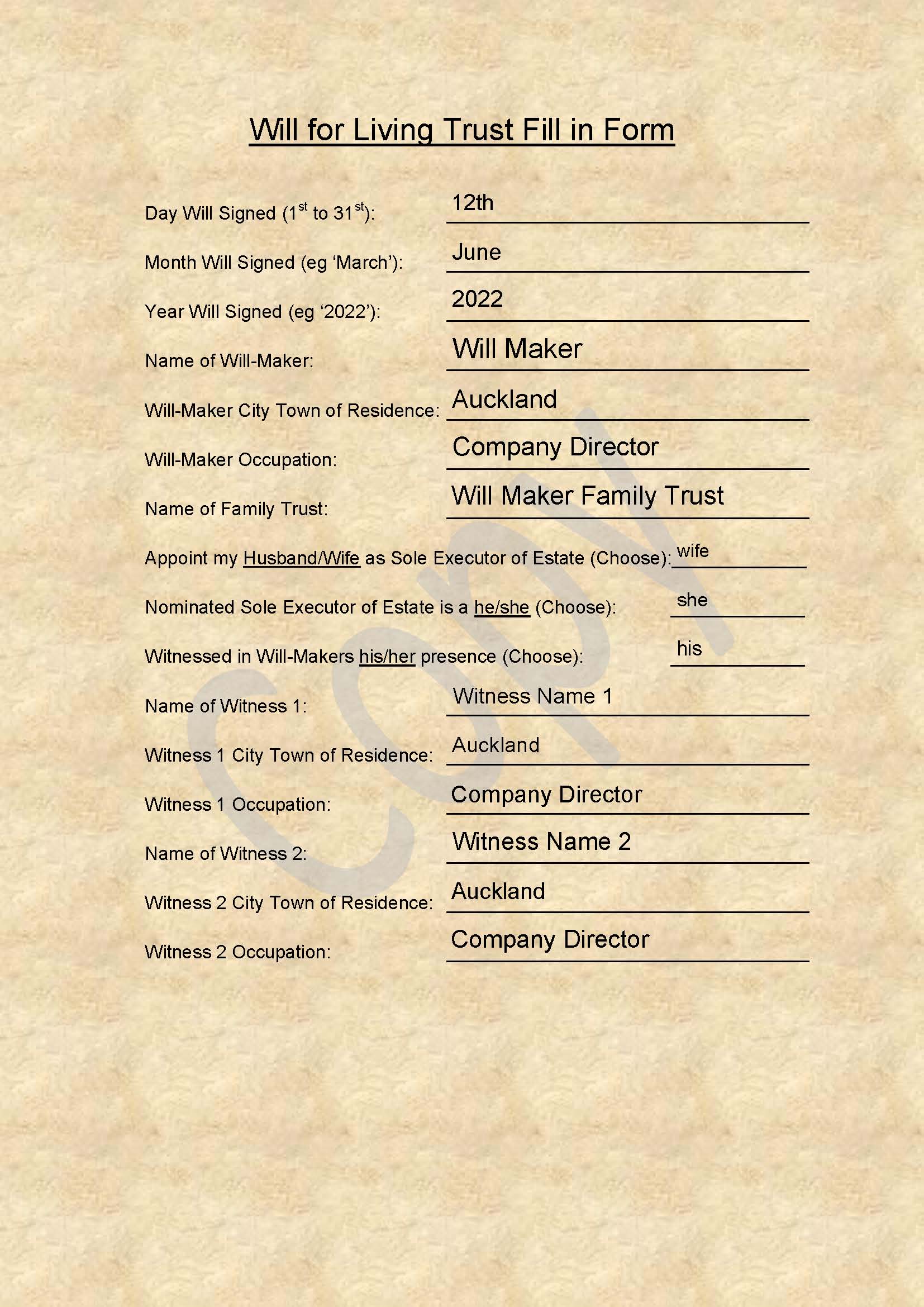

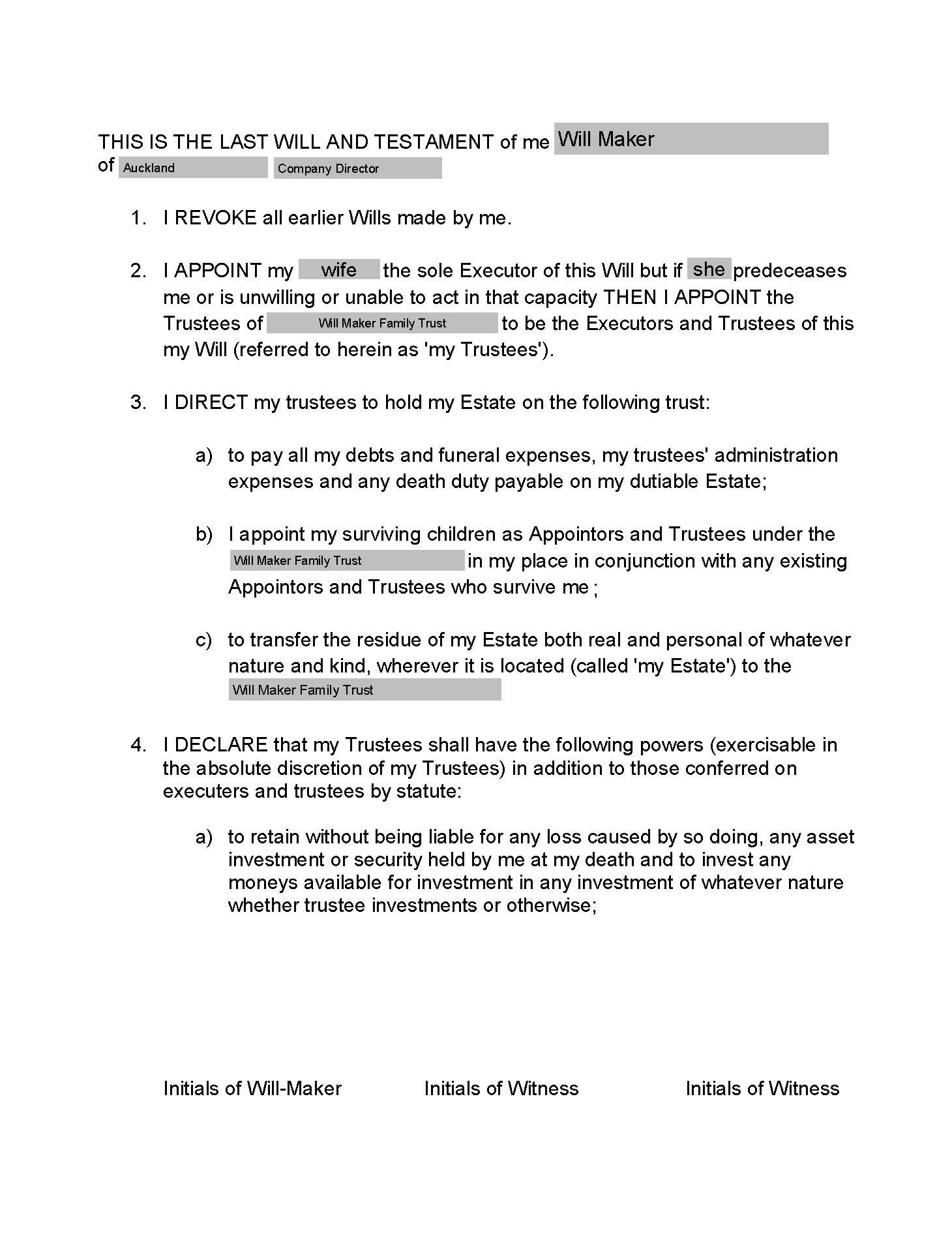
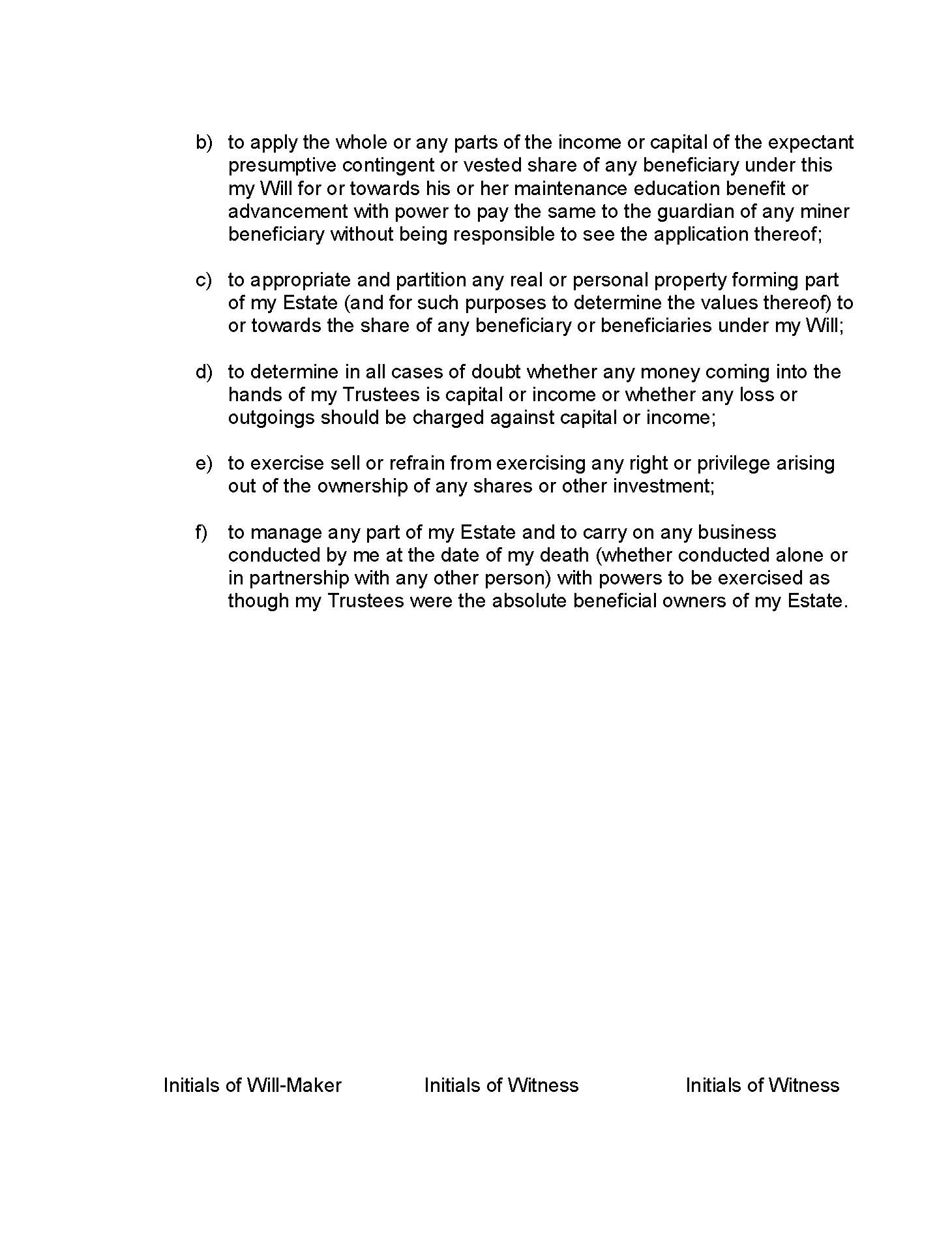
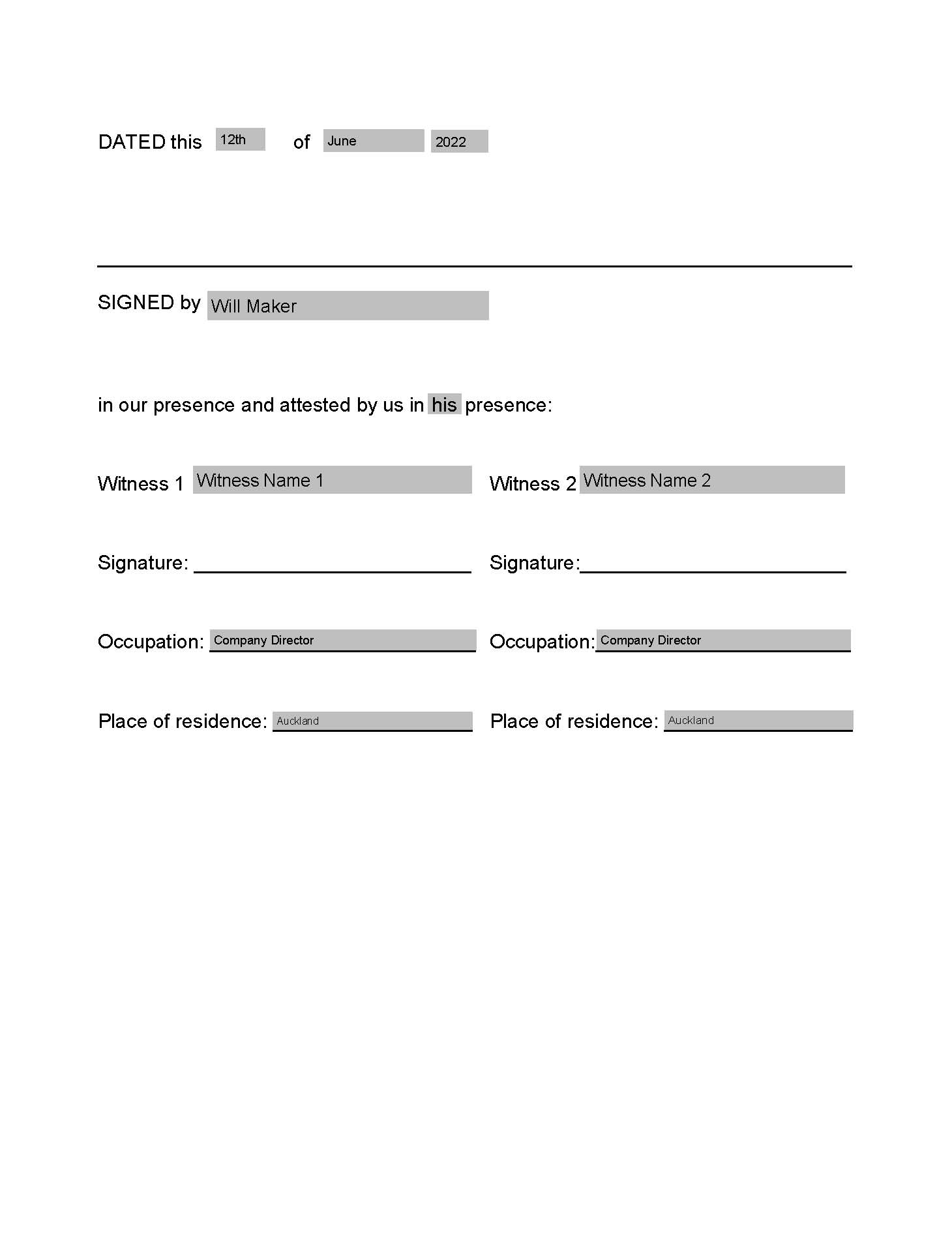

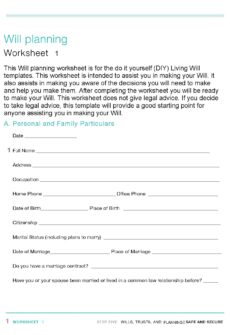
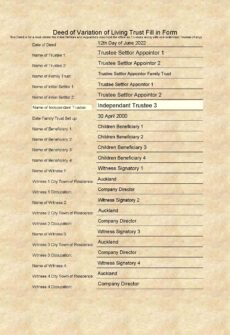
Reviews
There are no reviews yet.